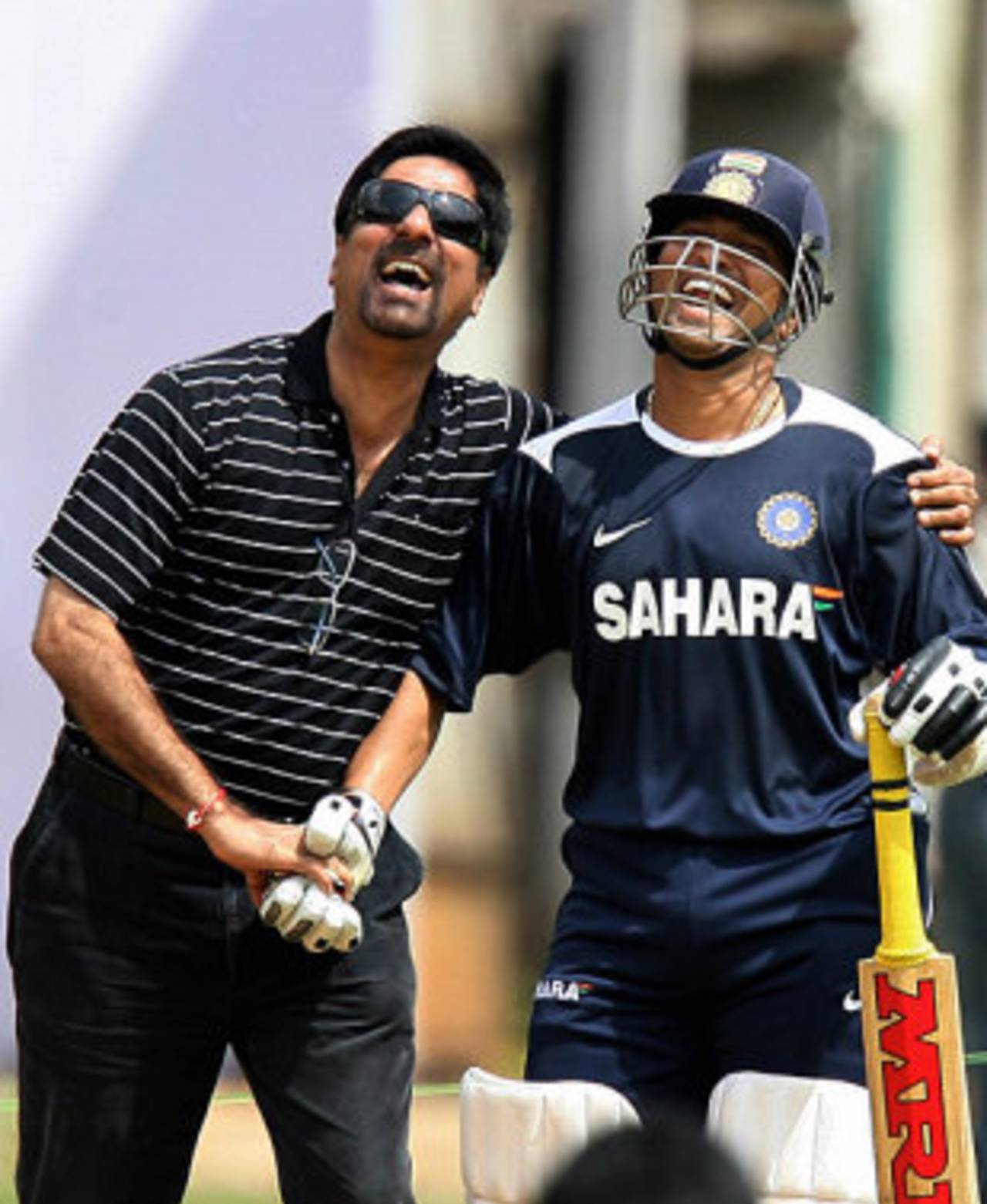Stay or go? It's not the player's call
Who decides when a cricketer retires? It should certainly not be the player himself
Harsha Bhogle
Feb 24, 2012, 3:24 AM

Kris Srikkanth has an unenviable job ahead of him • Dibyangshu Sarkar/AFP/Getty Images
It is only the brave and the content who know when to go. It is a difficult combination to possess and a rare person who has it. Some years ago my father wrote of my father-in-law that by opting not to prolong life in the intensive care unit, he had vanquished death at its own game. Giving up a sport might seem trivial compared to life, but for those who play it, and know little else of the world, saying goodbye to the spotlight is an almost impossibly difficult task. Unless, of course, you are bored, tired, frustrated or have a lucrative television contract that you have to take a decision on within a week.
Ian Chappell said he looked at the clock at 11.10, Ian Healy said going to training became a burden, Anil Kumble had taken every painkiller around, Kapil Dev had the record he so wanted and deserved. But for most, playing sport has been a way of life for 20 years, it has been their identity, their badge of honour, their cloak of accomplishment. It has defined them, but often it has blinded them to the existence of another world, one that they must now enter and are unready for; why, even one they might have looked down on, in the company of colleagues.
"Am I going to buy my own tickets?" they might ask. "Stand in a queue to check in? Hope the sponsor I gave a hard time to now remembers me. Damn, I'll play another season."
In the days gone by it was a bit easier. You gave up a little bit of fame but opted for another career while you still could. You got an opening in insurance, or became a school teacher, or - for those more blessed - you entered the lucrative family business. You knew cricket didn't always pay the mortgage or ensure an easy life after.
Now, staying on in the game has a far greater financial value attached. You, or your old classmate who became a chartered accountant, can calculate the future value of being in the team for another year.
It is a real issue, not one to be scoffed at or ridiculed. If we were cricketers at 35, having to take a call on whether or not to end a career, we would think similarly. There is enough money in the bank, but becoming a ghost-written columnist doesn't quite have the same ring to it as walking out to bat in a full stadium.
And that is why the decision on how long to play on must never belong to the player.
I often hear people saying that a Tendulkar or a Warne or a Kallis or a Ponting have earned the right to decide when to go. Of course they haven't. Nobody has.
Team sport at the very highest level is about putting the best people on the park, or those that you know can still be the best, for going through a difficult phase is written in the destiny of every athlete. The decision on whether or not a player is still capable of playing at his best must belong to someone else. To a selector, whose job, whose Hippocratic Oath, is to pick the best possible side for the national team.
And that is why picking the right selectors - proud, independent men who command respect for their integrity - is a key function of those who administer our game. It is a job that requires firmness in taking a decision and sensitivity in communicating it. It is a specialised skill, not a handout to someone who has the time.
It is imperative, too, that the selectors are independent and not pressured by those who might have reasons independent of team requirements. Many years ago in Hyderabad, I discovered that Mohammad Azharuddin was to be the next captain because I overheard someone trying to speak to the president of the BCCI on a long-distance line seeking his clearance. The selector could be overruled. That must not be so.
Now more than ever before, Indian cricket needs selectors of substance who can stand up to the ever-increasing media pressure and exercise their judgement. There are decisions to be taken on the future of four or five of the very best who have played for the country. The easiest place to be a selector is in the media, where you say your bit, remove your make-up and head off for dinner. These selectors cannot do that; they must live with their decision. I hope they make it and not become willing bystanders to someone else's will.
Harsha Bhogle is a commentator, television presenter and writer. His Twitter feed is here